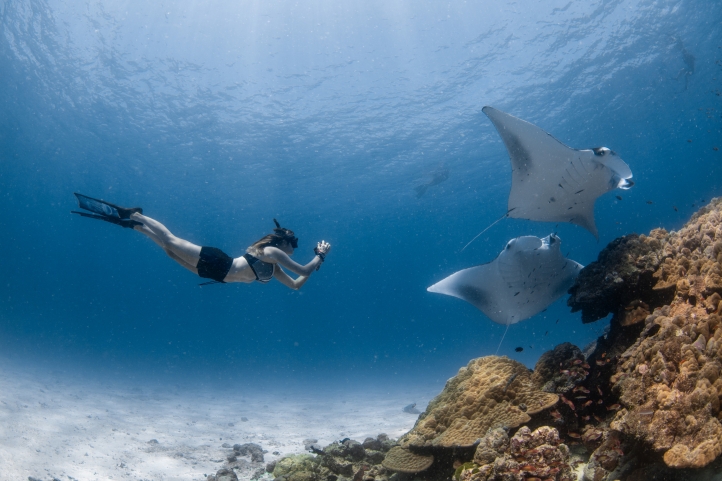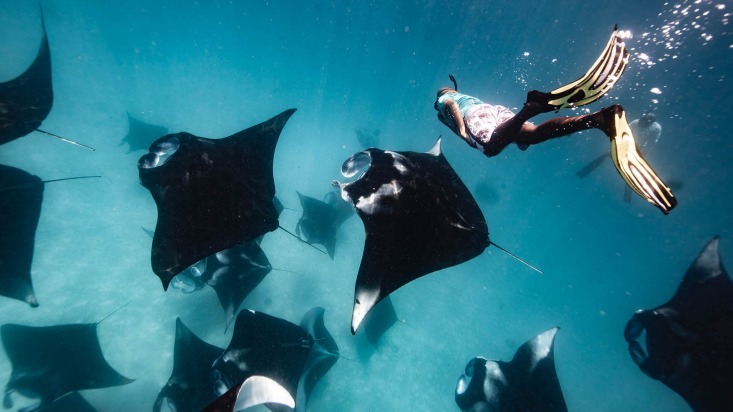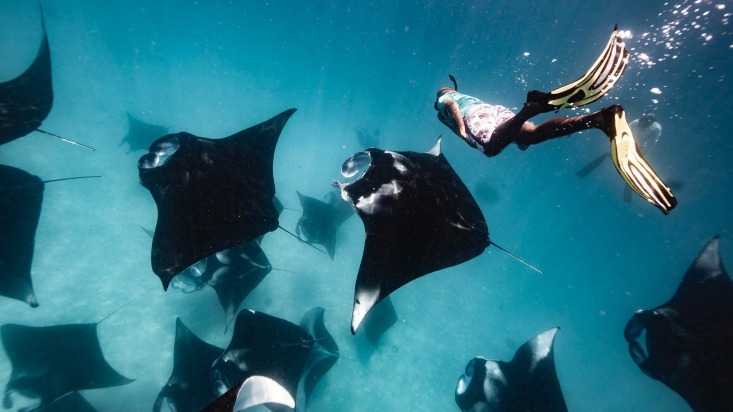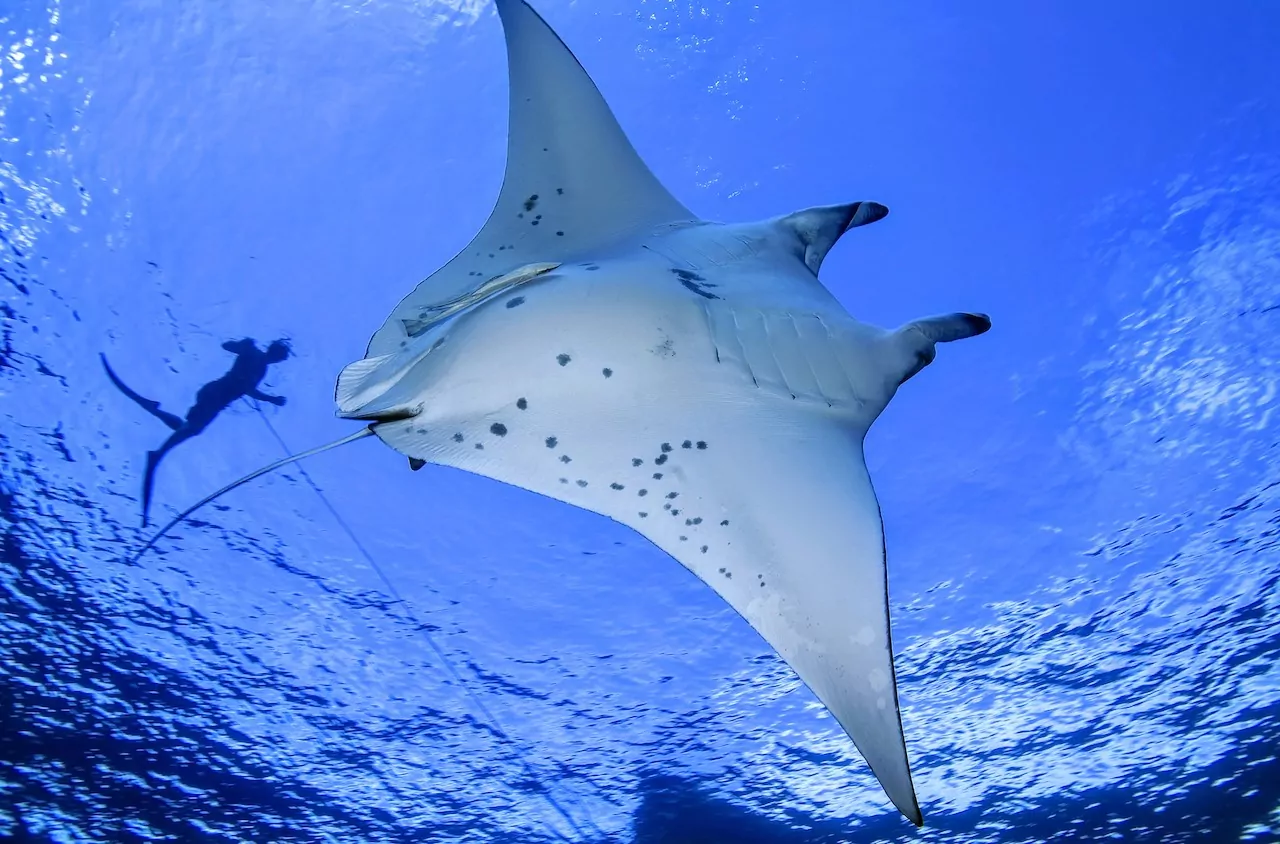Explore Manta Point in the Maldives: A Guide to the Ultimate Diving Destination

The Maldives, a tropical paradise in the Indian Ocean, is renowned for its vibrant coral reefs, clear blue waters, and diverse marine life. One of the most popular diving spots in the Maldives is Manta Point, a site famous for its large populations of manta rays. This SEO-optimized guide will give you everything you need to know about visiting Manta Point, why it’s one of the best places to see manta rays, and tips for planning a memorable diving adventure.
What is Manta Point in the Maldives?
Manta Point, also known as Lankan Manta Point, is a world-famous dive site located near the island of Lankanfinolhu in the Maldives. This particular area is a known cleaning station where manta rays come to be groomed by small fish, which eat parasites off their bodies. Manta rays are naturally attracted to this area, providing divers with a unique opportunity to see these graceful giants up close in their natural habitat.

Why Manta Point is the Best Place for Diving with Manta Rays
Manta Point offers consistent sightings of manta rays, particularly between the months of May and November, which is the monsoon season in the Maldives. During this period, the currents bring in a rich supply of plankton, attracting manta rays in large numbers. With visibility often ranging from 20 to 40 meters, divers can enjoy a clear view of these gentle giants as they glide through the water in schools.
Key Highlights of Manta Point:
1. Frequent Manta Ray Sightings: The predictable patterns and movements of manta rays make Manta Point an ideal spot for manta ray encounters.
2. Pristine Coral Reefs: The site is surrounded by colorful coral reefs, home to a wide array of marine life.
3. Clear Visibility: The crystal-clear water at Manta Point enhances the diving experience, offering breathtaking views of manta rays and other sea creatures.
4. Diverse Marine Life: Apart from manta rays, you may also encounter reef sharks, turtles, and various species of tropical fish.
When to Visit Manta Point
While manta rays can be seen year-round in the Maldives, the best time to visit Manta Point is from May to November. During these months, the southwest monsoon currents bring in an abundance of plankton, attracting manta rays in larger numbers. This period is also ideal for divers as the water temperature remains warm, usually ranging between 26-29°C (78-84°F).

How to Get to Manta Point
Manta Point is easily accessible from various islands in the Maldives, especially the North Male Atoll. Many dive operators and resorts offer daily trips to Manta Point. If you’re staying on nearby islands or at a resort, ask your hotel or dive center for specific details on arranging a trip.
Most dive tours to Manta Point are conducted on traditional Maldivian boats called dhonis, which offer comfortable seating and space for dive gear. These tours are generally half-day trips, allowing you to experience multiple dives at Manta Point and neighboring sites.
What to Expect on a Dive at Manta Point
Diving with Manta Rays: The primary attraction at Manta Point is the cleaning station where manta rays come to be groomed. You’ll be able to witness these majestic creatures hovering over the reef while small wrasse fish clean their skin.
Ideal Diving Conditions: Manta Point’s depths range from around 12-30 meters, making it suitable for both novice and experienced divers. With minimal currents, it’s generally a comfortable dive site for all levels, although some operators may require a certain level of certification to ensure safety.
Other Marine Life: In addition to manta rays, Manta Point is home to reef sharks, Napoleon wrasse, moray eels, and a myriad of colorful fish. You’ll have plenty of opportunities to photograph these fascinating creatures against the backdrop of vibrant coral reefs.

Tips for Diving at Manta Point
1. Book in Advance: Manta Point is a popular spot, so it’s recommended to book your dive tour in advance, especially during peak season.
2. Choose a Reputable Dive Operator: Look for dive centers with experienced guides who prioritize safety and environmental responsibility.
3. Use Proper Dive Gear: Many dive operators provide gear, but if you have your own equipment, make sure it’s suitable for warm tropical waters.
4. Stay Calm and Move Slowly: Manta rays are sensitive to movement, so try to stay calm and avoid sudden actions. This will increase your chances of a close encounter.
5. Respect Marine Life: Avoid touching or chasing manta rays and other sea creatures to ensure a safe and respectful interaction with nature.
Other Dive Sites Near Manta Point
If you’re diving at Manta Point, you may also want to explore other nearby dive sites in the Maldives. Some popular choices include:
- Banana Reef: Known for its colorful coral formations and schools of fish.
- Fesdhoo Lagoon: Another site where you can spot manta rays during the season.
- Maaya Thila: Famous for night diving and encounters with reef sharks.
Conservation Efforts for Manta Rays in the Maldives
Manta rays are listed as vulnerable species due to threats such as overfishing, habitat loss, and climate change. The Maldivian government, along with conservation organizations, has implemented strict regulations to protect manta rays and their natural habitats. By diving responsibly and supporting ethical dive operators, visitors can contribute to the conservation of these majestic creatures.
Final Thoughts
A visit to Manta Point in the Maldives offers one of the most exhilarating diving experiences in the world. With its unparalleled opportunity for close encounters with manta rays, crystal-clear waters, and vibrant coral reefs, Manta Point is a must-visit destination for diving enthusiasts and nature lovers alike.
Whether you’re an experienced diver or a novice looking to explore the underwater world, Manta Point provides an unforgettable adventure that showcases the beauty and diversity of marine life in the Maldives.
- News & Updates
- Travel Destinations
- Maldivian Tourism
- Healthcare & Wellness
- Lifestyle
- Personal Stories & Experiences
- Sports
- Water Sports & Adventure
- Accommodation & Stays
- Outdoor Activities
- Local Culture & Heritage
- Spa & Wellness
- Transportation
- أخرى
- Fishes and Marine Species


